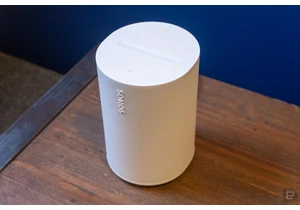Scientists are sending several strains of disease-causing bacteria to the International Space Station as part of the Crew-11 mission. This experiment isn't the plot to some ">cheesy horror film, but a scientific investigation from the Sheba Medical Center in Israel and the US-based company Space Tango with the goal of better understanding how bacteria spread and behave under extreme conditions. The experiment includes E. coli, along with bacteria that cause diseases like typhoid fever and the infection commonly known as Salmonella.
After reaching the ISS, the experiment will see the different bacterial species grow before being returned to Earth to be tested against counterparts that were grown simultaneously in an identical lab under normal conditions. The experiment's results will help scientists understand how bacteria respond to zero gravity and could help astronauts, who are more prone to infections during missions due to stress, exposure to radiation and changes in gravity. However, the research could prove useful beyond space missions. With the onset of superbugs that show antibiotic resistance, the experiment could reveal ways to combat more robust bacterial strains.
"This experiment will allow us, for the first time, to systematically and molecularly map how the genetic expression profile of several pathogenic bacteria changes in space," Ohad Gal-Mor, head of the Infectious Diseases Research Laboratory at Sheba, said in a press release.
The medical center previously conducted a test with bacteria in simulated space conditions, which showed a reduced ability to develop antibiotic resistance, but the latest experiment is the first one to take place at the ISS. It's not the first time scientists have studied bacteria's behavior in microgravity conditions, since researchers from the University of Houston tested how E. coli would grow in a simulated space environment back in 2017. More recently, NASA launched an experiment tasking astronauts to swab the interiors of the ISS and test them for evidence of antibiotic-resistant bacteria.
This article originally appeared on Engadget at https://www.engadget.com/science/space/nasas-latest-mission-to-the-iss-features-a-bacterial-experiment-195004174.html?src=rss https://www.engadget.com/science/space/nasas-latest-mission-to-the-iss-features-a-bacterial-experiment-195004174.html?src=rssConnectez-vous pour ajouter un commentaire
Autres messages de ce groupe

SpaceX's massive Starship rocket is scheduled to lift off from the company's Texas launch site as soon as this evening for its 10th flight. The launch window opens at 7:30PM ET (6:30PM CT). As alwa


">Unhinged as Grok may be, it's now open source. xAI'

Known for its premium ha

The back-to-school season isn't only a good time to save on things like a new laptop. Case in point: Sonos' bac

Anker makes some of our favorite charging gear, and now you can save on a bunch of wireless power accessories from the brand. Whether you're going back to school soon or want a new charging station

Labor Day marks the unofficial end to summer as the weather starts to get crisper and students head back to school f
